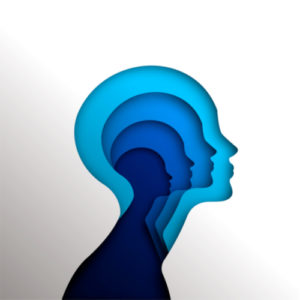
Posted June 2019 by Clifton Stamp, B.S. Psychology; M.A. Rehabilitation Counseling, M.A. English; 10 updates since. Reading time: 5 min. Reading level: Grade 11+. Questions on 21st century psychology? Email Toni at: editor@online-psychology-degrees.org.
For millennia, people have been curious about what shapes and motivates behavior. As the years have gone by and science came to dominate the study of behavior, psychology as a discipline was born. Early 20th century thinkers saw a union between natural philosophy and observational biology, which formed early psychological inquiry. Throughout the last century, psychology became established as a legitimate means of scientific inquiry into human behavior, with many applications. During the last quarter of the 20th century, psychology expanded into different functional specialties while moving away from the monolithic concepts, such as mechanistic behaviorism, that dominated it during much of the 20th century. Psychology has also freed itself from the last tenuous grips of psychoanalysis and psychiatry and moved toward its own destiny as an always-evolving study of the things people do and the determinants of those actions.
5 Key Facts About Psychology in the 21st Century
For the most part, changes in psychology as a science during the early years of the 21st century continue to be more evolutionary than revolutionary, except neuropsychology, in which new technology is fueling amazing discoveries. In general, psychology continues to be both a theoretical and applied discipline, with increasingly greater emphasis on applications.
Here are just a few facts about psychology as it’s developing in the 21st century.
- The mind/brain gap continues to close. One of the most important ways psychology in the 21st century is different from decades gone by is its emphasis on bringing together conflicting schools of thought and synthesizing useful solutions. Consider the paradigm-straining conflict between concepts of the mind and the brain. Strict biologists (and behaviorists) believed that the concept of the mind was only a placeholder and not something with an objective existence. The idea of the “mind” to behaviorists and functionalists was nothing more than a complex internalized series of reinforcement schemata. Cognitivists held that since the turn of the century, however, psychology has given more attention and value to concepts of mentality. Reconciling the gaps between the brain and the mind is one of the biggest challenges psychology faces in the 21st century, but it’s becoming easier due to sophisticated neural scanning techniques.
- Practical neuropsychology is on the rise. As neuroscience and neuropsychology continue to make advances, the merger between the high frontier of brain studies and real-world applications for neurological findings has accelerated. In part, that’s due to the development of sophisticated brain scanning technology that can be used while subjects complete complex tasks. As brain scanning equipment becomes smaller and more powerful, it can be deployed across many everyday situations, thus increasing the applicability of neuropsychology findings. Neuropsychology is also making progress in understanding how different dementias develop in the aged and how those dementias progress.
- Psychology continues to fragment. Psychology has become specialized, in the best possible of ways, in that it’s become tightly integrated into many diverse disciplines, like organizational management, consumer marketing, advertising, and the development of artificial intelligence. The ways in which people think and form concepts are considered in the development of computer programs, internet search algorithms, and user interfaces. Psychology continues to diversify into different human-centric applications and sub-fields because of its helpfulness. At the top-tier, formal research psychology and applied psychology interact.
- Evolutionary Psychology comes into its own. Evolutionary psychology is an approach to understanding, describing and predicting behavior based on the theory of evolution as developed by Charles Darwin. Evolutionary psychology examines how biological evolution has affected persistent patterns of behavior, as well as consistent human cognitive patterns. looks at how biological evolution has shaped patterns of human behavior and the cognitive system we call the mind. To that end, psychology is seen as a function of evolutionary biology in which developments in the human brain and mind have been advantageous to the survival of the human species.
- Positive psychology continues to flourish and is slowly becoming a bigger part of what people see in the media concerning psychology. Mental healthcare and mental wellness. Psychology continues to inform and guide counseling and psychotherapy. As it has for decades, psychology studies mental illness and treatments, as well as helping develop treatment and measure its effectiveness. A newer approach to mental health, positive psychology examines the psychological factors and variables that promote human happiness. Given that applied psychology has dealt so much with mental illness, it may seem strange to see this focus on the positive side of mental health, but consider also that within the field of medicine, promoting wellness has become a burgeoning part of healthcare, as opposed to only treating illness.
Psychology in the 21st Century and Beyond
Psychology in the 21st century continues to develop and improve upon trends that were established in the previous century, including the use of psychology to study intelligence, learning and school performance. Business and corporations are still heavily influenced by the tenets of organizational psychology. Psychology also remains a big part of forensics and criminology. As long as people remain fascinated by the things that people do, psychology will be there.
More Psychology Articles of Interest:
- 10 Key Moments in the History of Psychology
- What Jobs Can I Get With A Psychology Degree?
- What Tools Do Scientists Use To Monitor Our Brain Function?
- What Are The Most Helpful Psychology Certifications for Resumes?
